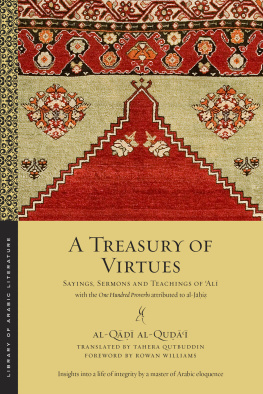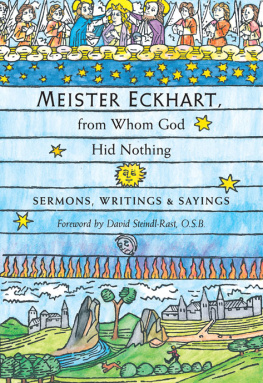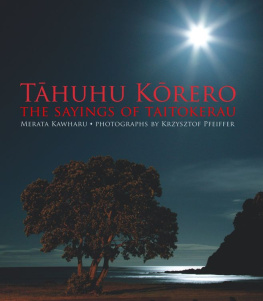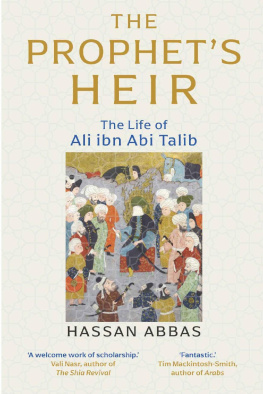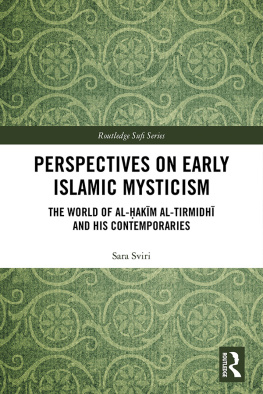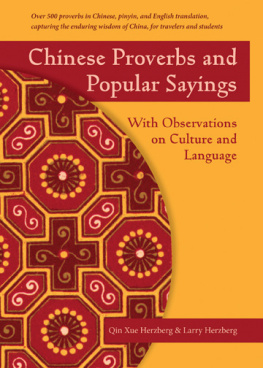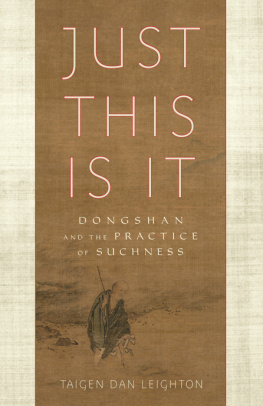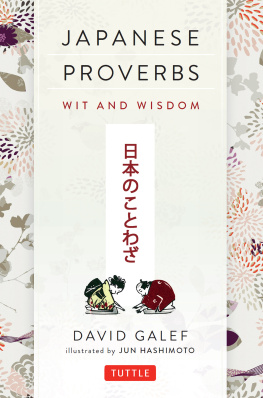
A TREASURY OF VIRTUES
and
ONE HUNDRED PROVERBS
LIBRARY OF ARABIC LITERATURE
EDITORIAL BOARD
GENERAL EDITOR
Philip F. Kennedy, New York University
EXECUTIVE EDITORS
James E. Montgomery, University of Cambridge
Shawkat M. Toorawa, Yale University
EDITORS
Sean Anthony, The Ohio State University
Julia Bray, University of Oxford
Michael Cooperson, University of California, Los Angeles
Joseph E. Lowry, University of Pennsylvania
Maurice Pomerantz, New York University Abu Dhabi
Tahera Qutbuddin, University of Chicago
Devin J. Stewart, Emory University
EDITORIAL DIRECTOR
Chip Rossetti
DIGITAL PRODUCTION MANAGER
Stuart Brown
ASSOCIATE MANAGING EDITOR
Gemma Juan-Sim
LETTER FROM THE GENERAL EDITOR
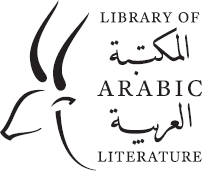
The Library of Arabic Literature series offers Arabic editions and English translations of significant works of Arabic literature, with an emphasis on the seventh to nineteenth centuries. The Library of Arabic Literature thus includes texts from the pre-Islamic era to the cusp of the modern period, and encompasses a wide range of genres, including poetry, poetics, fiction, religion, philosophy, law, science, history, and historiography.
Books in the series are edited and translated by internationally recognized scholars and are published in parallel-text format with Arabic and English on facing pages, and are also made available as English-only paperbacks.
The Library encourages scholars to produce authoritative, though not necessarily critical, Arabic editions, accompanied by modern, lucid English translations. Its ultimate goal is to introduce the rich, largely untapped Arabic literary heritage to both a general audience of readers as well as to scholars and students.
The Library of Arabic Literature is supported by a grant from the New York University Abu Dhabi Institute and is published by NYU Press.
Philip F. Kennedy
General Editor, Library of Arabic Literature
ABOUT THIS PAPERBACK
This paperback edition differs in a few respects from its dual-language hardcover predecessor. Because of the compact trim size the pagination has changed, but paragraph numbering has been retained to facilitate cross-referencing with the hardcover. Material that referred to the Arabic edition has been updated to reflect the English-only format, and other material has been corrected and updated where appropriate. For information about the Arabic edition on which this English translation is based and about how the LAL Arabic text was established, readers are referred to the hardcover.
A TREASURY OF VIRTUES
Sayings, Sermons and Teachings of Al
BY
AL-Q AL-QU
WITH THE
ONE HUNDRED PROVERBS
ATTRIBUTED TO
AL-JI

TRANSLATED BY
TAHERA QUTBUDDIN
FOREWORD BY
ROWAN WILLIAMS

NEW YORK UNIVERSITY PRESS
New York
Copyright 2016 by New York University
All rights reserved
Library of Congress Cataloging-in-Publication Data
Names: Ali ibn Abi Talib, Caliph, approximately 600661 author. | Qutbuddin, Tahera translator. | Qudai, Muhammad ibn Salamah, 1062. | Jahiz, 868 or 869. Works. Selections. English.
Title: A treasury of virtues : sayings, sermons and teachings of Ali al-Qadi al-Qudai : with the one hundred proverbs attributed to al-Jahiz / translated by Tahera Qubtbuddin ; foreword by Rowan Williams.
Description: New York : New York University Press, 2016. | Includes bibliographical references and index.
Identifiers: LCCN 2016021227 (print) | LCCN 2016027117 (ebook) | ISBN 9781479896530 (pb : alk. paper) | ISBN 9781479836116 (e-book) | ISBN 9781479888429 (e-book)
Classification: LCC PJ7698.A5 A2 2016 (print) | LCC PJ7698.A5 (ebook) | DCC 892.7/8209dc23
LC record available at https://lccn.loc.gov/2016021227
New York University Press books are printed on acid-free paper, and their binding materials are chosen for strength and durability.
Series design and composition by Nicole Hayward
Typeset in Adobe Text
Manufactured in the United States of America
10 9 8 7 6 5 4 3 2 1
dedicated to Syedna Mohammad Burhanuddin with deepest gratitude
CONTENTS
FOREWORD
ROWAN WILLIAMS
It is a commonplace among some modern commentators to say that in understanding Islam we should remember that it is a much younger faith than Christianity or Judaism, and thus further back in what has been called the curve of civilizational development (this is sometimes expressed in the historically illiterate use of medieval to describe contemporary extremism). Well-meaning writers use this sort of description to recommend patience and tolerance towards a tradition that has not yet matured properly; not-so-well-meaning observers treat it as confirming what they believe to be the essentially anti-modern character of Islam. But what both ignore is what might be called the sheer density of tradition: an accumulation of reflective life whose roots are deep in the Western Asian world before even the rise of the religion itself. Modern Muslim primitivism, whose excesses and atrocities are so regularly portrayed in our media, gives no sense whatever of this densityof the sophistication of moral and spiritual thought and the intense intellectual life of early Muslim communities. Alongside the radical newness of the Quran, Islamic culture built on an existing deposit of thought, often expressed in aphorisms and short narratives: the first great figures of Islam inhabited a world that was very far from the stereotype of simple desert-dwelling warriors beloved of contemporary essayists. The trade routes of the Western Asian world in the seventh and eighth Christian centuries were channels of intellectual as well as material exchange: texts, stories and sayings travelled with the traders of the day and mingled creatively in the various centers of commerce and conversation that punctuated these routes.
And this is the world we find in the extraordinary collection of stories, prayers and aphorisms that is presented to us in this elegant translation by Tahera Qutbuddin. It is certainly a world in which warfare is frequently present and in which the metaphors and idioms of the desert are omnipresent; a world in which a great intellectual figure can also be both a skilled military strategist and a poet of elegies and encomia woven around armed conflict: this collection contains poetry that, in its subject matter, would not be alien to the early medieval West, the heroic laments and celebrations of Welsh or Anglo-Saxon verse from roughly the same period. But this is only a small corner of a remarkably diverse palette. Al ibn Ab lib was of course a military leader among other things, but a military leader in the Western Europe of the day would have been most unlikely also to have produced prayers of eloquence and intensity, philosophical considerations of the grammar of Gods eternity and self-sufficiency, and wisdom sayings of profound economy and insight. The chapter of prayers and devotions in the Treasury is full of the same spiritual earnestness about sin and repentance that can be found in the Byzantine prayers of the early Middle Ages, and the language about the heart as center of spiritual life and true intellectual life alike is also echoed in the Eastern Christian world, not least in Syrian spiritual and theological literature. Conceptions of spiritual self-examination, the purifying of inner fantasies and the growth of transparency to God and before God are part of a shared world of deep seriousness about the disciplines of spiritual maturity. Here and there, there are distant echoes also of the aphorisms of the Desert Fathers, the early generations of monks in Egypt and Syriatexts which have, incidentally and intriguingly, left their mark on later Islamic traditions about Jesus. There is a great deal of work still to be done about the transmission of this kind of aphoristic wisdom between different religious confessions in the region.
Next page
